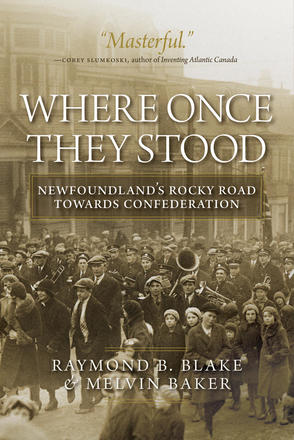Update: The links below don't work any more.
Both the screwed up one (March 20) and the revised one (March 21) appear to have disappeared from the government list of orders issued during the emergency.
___________________________
Both the screwed up one (March 20) and the revised one (March 21) appear to have disappeared from the government list of orders issued during the emergency.
___________________________
On Friday
Premier Dwight Ball took a question from reporters about the Liberal leadership
that is still underway.
In a moment
of egotistical boasting, Ball said it “takes experience to get through
this crisis that we're dealing with. Someone said to me this morning it
takes experience to do that job, and not often do you see a card on the back of
a fire truck saying 'Novice Driver’”.
On
Friday, the provincial government issued
an order under the Public Health Protection and Promotion Act that directed individuals entering Newfoundland and Labrador from
out of the province – either originating or returning – to enter a mandatory
period of isolation for 14 days regardless of whether they were exhibiting symptoms
of COVID-19 or not.
Problem: The Friday order, as written, effectively
shut down the provincial economy and cut the province off from supplies of food
and fuel.
All individuals arriving in Newfoundland and Labrador from outside the province must self-isolate for 14 days, including those individuals arriving from other provinces and territories in Canada.
The
original order applied to *everyone*:
- crews
on Marine Atlantic ferries,
- tanker crews, including the folks coming to Come by Chance and the refinery,
- OCEANEX
crews and other shipping companies that bring food, fuel, and essential
supplies into the province,
- people
who work on one side of the border in Labrador and live on the other,
- people involved in supplying electricity to the province,
- crews
working on and supplying the offshore platforms,
- medical personnel arriving to help treat patients or back-fill positions,
- airline crews and passengers of all kinds,
- helicopter crews servicing the offshore rigs, which are outside the three-mile limit that is the province's jurisdiction, and
- truck drivers who bring everything and anything into the province and who take manufactured goods out again.
And so,
after some uncertainty in the world outside government and a bunch of frantic
calls and emails, the provincial government issued a second order the next day
exempting all those people needed to keep the province running and keep people fed.
Someone check for a Novice Premier sign on the back of Dwight's car.
-srbp-

















